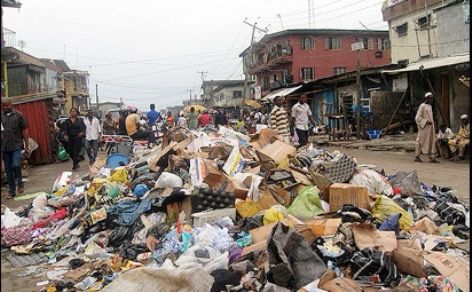For nearly two decades, the management of sanitation in Ghana has been significantly influenced by a single entity: Zoomlion Ghana Limited. From its inception under the National Youth Employment Programme (NYEP) to its continuation through GYEEDA and now the Youth Employment Agency (YEA), Zoomlion has held a central role in the nation’s efforts to address waste management and sanitation challenges.
However, this long-standing arrangement has increasingly come under public scrutiny, raising critical questions about its effectiveness, fairness, and financial prudence.
As the latest contract approaches potential renewal, a growing chorus of voices is calling for a fundamental shift: it’s time to dismantle the monopoly, empower local assemblies, and usher in a new era of sanitation management in Ghana.
The genesis of this centralized approach dates back to 2006, when Zoomlion was contracted under the NYEP to manage the Youth in Sanitation module. While the initiative aimed to tackle both unemployment and poor sanitation, the financial structure of the contracts has consistently drawn criticism. Investigative journalist Manasseh Azure Awuni has been at the forefront of exposing the stark disparities in the allocation of funds.
Under the latest expired contract, for every GH¢850 allocated per sweeper, Zoomlion retained GH¢600, while the actual sanitation worker received a meagre GH¢250. This significant imbalance has fuelled allegations of exploitation and unfair treatment of the very individuals tasked with keeping Ghana clean.
Beyond the concerns about worker compensation, serious questions linger over the transparency and accountability of these contracts. Reports indicate a consistent struggle to verify the actual number of sanitation workers on the ground.
In 2018, a headcount by the YEA revealed a significantly lower number of sweepers than the 45,000 claimed by Zoomlion. The inability of the YEA to obtain a verifiable payroll from Zoomlion further compounds these concerns, raising the spectre of potential “ghost names” and fraudulent payments. Even the Accra Metropolitan Assembly (AMA) has voiced its frustration, reporting the absence of working sweepers in their metropolis despite continued payments.
The financial implications of these long-term contracts are staggering. While precise figures are difficult to ascertain, the government has poured billions of Cedis into these arrangements over the past fifteen years. Adding to this burden, the government reportedly owes Zoomlion over GH¢1.2 billion for unpaid services in recent years. Moreover, interest charges levied by Zoomlion for delayed payments have further inflated the cost to the state, reaching a reported GH¢90 million in 2024 alone.
The 2013 GYEEDA report, commissioned by then-President Mahama, highlighted significant issues with the Zoomlion contracts, including single-source procurement without adherence to the Public Procurement Act and serious concerns about value for money. The report recommended competitive bidding for future contracts and a rationalization against existing agreements with local assemblies to prevent duplication and overcharging. Yet, the core of the arrangement has persisted.
The call for change is not merely based on allegations. There are viable alternatives that could empower local authorities and foster a more competitive and responsive sanitation sector. Ghana’s own Environmental Sanitation Policy advocates for decentralized approaches, encouraging Metropolitan, Municipal, and District Assemblies (MMDAs) to develop their own strategies.
The Local Government Act further empowers these assemblies to provide sanitation services. By empowering MMDAs to contract sanitation service providers directly, the system could become more tailored to local needs, potentially leading to greater efficiency and accountability.
Furthermore, examples from other African nations and globally demonstrate the success of community-based waste management programmes. These initiatives foster community ownership and can lead to more sustainable sanitation practices.
The history of Zoomlion’s operations also includes a concerning chapter in Liberia.
In 2013, the World Bank debarred the company for two years after it admitted to paying bribes to facilitate contract execution. While the debarment was later lifted , this incident underscores the importance of stringent due diligence and ethical considerations in awarding public contracts.
Ghana stands at a critical juncture. The non-renewal of the current Zoomlion contract presents an opportunity to reimagine the nation’s approach to sanitation. By dismantling the long-standing monopoly and empowering local assemblies to manage their own sanitation services, Ghana can foster a more competitive, transparent, and ultimately more effective system.
This shift would not only ensure better value for money for Ghanaian taxpayers but also potentially lead to improved working conditions and wages for the dedicated individuals who work tirelessly to keep our communities clean.
The time for bold action is now, to pave the way for a cleaner, healthier, and more sustainable future for all Ghanaians. Could President John Dramani Mahama take that bold transformational step?.
Editor’s Note: The author, Raymond Ablorh, popularly called ‘President Ablorh’ is a sought-after and thought-provoking writer who has contributed meaningfully to national conversations since the year 2000.

